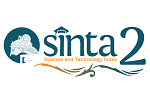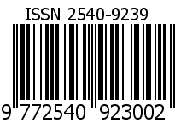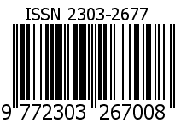Diseminasi informasi zero waste oleh Yayasan Pengembangan Biosains dan Bioteknologi
Abstract
Keywords
Full Text:
PDFReferences
Arisyanti, P. (2018). Pengelolaan sampah untuk kesejahteraan masyarakat: Studi kasus di Kelurahan Bumi, Laweyan, Surakarta (Skripsi) [UIN Sunan Kalijaga, Yogyakarta]. http://webcache.googleusercontent.com/search?q=cache:D3SbuA7bgB4J:digilib.uin-suka.ac.id/32912/1/14250074_BAB-I_IV-atau-V_DAFTAR-PUSTAKA.pdf+&cd=1&hl=id&ct=clnk&gl=id
Bahri, S. (2015). Strategi pengelolaan sampah oleh Dinas Kebersihan, Pertamanan dan Pemakaman di Kabupaten Tanggerang (Skripsi) [Universitas Sultan Ageng Tirtayasa, Serang]. http://repository.fisip-untirta.ac.id/594/1/STRATEGI PENGELOLAAN SAMPAH OLEH DINAS KEBERSIHAN PERTAMANAN DAN PEMAKAMAN %28DKPP%29 DI KABUPATEN TA - Copy.pdf
Cangara, H. (2018). Perencanaan dan strategi komunikasi. Jakarta: Raja Grafindo Persada.
Creswell, J. (2016). Desain penelitian. Jakarta: KIK Press.
Diandara, C. M. (2017). Implementasi kebijakan pemerintah dalam pengelolaan daur ulang sampah di Kota Metro (Skripsi) [Universitas Lampung, Bandar Lampung]. http://digilib.unila.ac.id/26116/
Djaffar, R. (2017). Diseminasi teknologi informasi pada masyarakat nelayan di Kabupaten Takalar dan Barru. Jurnal Penelitian Komunikasi Dan Opini Publik, 21(1), 73–87. https://jurnal.kominfo.go.id/index.php/jpkop/article/view/955/598
Komari, A. S., Abdulhak, I., & Heryanto, N. (2013). Sikap ibu rumah tangga terhadap penerapan program zero waste lifestyle di Kelurahan Sukaluyu Kota Bandung. Jurnal Pendidikan Luar Sekolah, 9(2), 1–9. https://ejournal.upi.edu/index.php/pls/article/view/5417/3713
Kusumajanti, Purnama, M., & Priliantini, A. (2018). Diseminasi informasi publik oleh Humas Kementerian Kelautan dan Perikanan Republik Indonesia dalam menumbuhkan public awareness: Studi kasus terkait penggunaan pukat hela dan pukat trawl pada nelayan di Kepulauan Seribu. Jurnal Komunikasi, Media Dan Informatika, 7(3), 116–126. https://jurnal.kominfo.go.id/index.php/komunika/article/view/1630/992
Mahyudin, R. P. (2017). Kajian permasalahan pengelolaan sampah dan dampak lingkungan di TPA (Tempat Pemrosesan Akhir) (Study waste problems and landfill environmental impact). Jukung: Jurnal Teknik Lingkungan, 3(1), 66–74. https://doi.org/10.20527/jukung.v3i1.3201
Nurazizah. (2018). Peran pustakawan dalam diseminasi informasi via jurnal elektronik lokal dan dampaknya terhadap kepuasan pemustaka di UPT. Perpustakaan Unsyiah (Skripsi) [Universitas Islam Negeri Ar-Raniry, Darussalam]. https://repository.ar-raniry.ac.id/id/eprint/4796/
Nurdiansyah, A. (2013). Efektivitas diseminasi informasi di Perpustakaan Kemitraan bagi pembaruan tata pemerintahan Jakarta menurut persepsi pengguna (Skripsi) [Universitas Islam Negeri Sunan Kalijaga, Yogyakarta]. http://digilib.uin-suka.ac.id/12010/1/BAB I%2C V%2C DAFTAR PUSTAKA.pdf
Ordoñez, M., & Serrat, O. (2017). Disseminating knowledge products. In Knowledge Solutions (pp. 871–878). Singapore: Springer. https://doi.org/10.1007/978-981-10-0983-9_97
Prihandoyo, W. B. (2014). Efektivitas diseminasi informasi pertanian melalui media telepon genggam pada petani sayuran di Kecamatan Pacet Kabupaten Cianjur (Tesis) [Institut Pertanian Bogor (IPB), Bogor]. https://repository.ipb.ac.id/handle/123456789/73028
Purwaningrum, P. (2016). Upaya mengurangi timbunan sampah plastik di lingkungan. Indonesian Journal of Urban and Environmental Technology, 8(2), 141–147. https://doi.org/10.25105/urbanenvirotech.v8i2.1421
Retnowati, E. (2014). Studi deskriptif diseminasi informasi pesan kebencanaan di kelompok masyarakat kawasan rawan bencana Desa Umbulharjo Kecamatan Cangkringan Kabupaten Selman Daerah Istimewa Yogyakarta (Skripsi) [Universitas Diponegoro, Semarang]. https://ejournal3.undip.ac.id/index.php/interaksi-online/article/view/7302/7062
Rodiah, S., Budiono, A., & Rohman, A. S. (2018). Model diseminasi informasi komunikasi kesehatan masyarakat pedesaan di Kabupaten Bandung Barat. Jurnal Kajian Komunikasi, 6(2), 175–190. https://doi.org/10.24198/jkk.v6i2.17771
Septiani, B. A., Arianie, D. M., Risman, V. F. A. A., Handayani, W., & Kawuryan, I. S. S. (2019). Pengelolaan sampah di Salatiga: Praktik dan tantangan. Jurnal Lingkungan, 17(1), 90–99. https://doi.org/10.14710/jil.17.1.90-99
Setyowati, R., & Mulasari, S. A. (2013). Pengetahuan dan perilaku ibu rumah tangga dalam pengelolaan sampah plastik. Kesmas: National Public Health Jurnal, 7(12), 562–566. https://doi.org/10.21109/kesmas.v7i12.331
Siswantini. (2017). Literasi pengelolaan sampah Kota Bandung (Disertasi). Universitas Padjadjaran, Sumedang.
Wahyudi, J., Prayitno, H. T., & Astuti, A. D. (2018). Pemanfaatan limbah plastik sebagai bahan baku pembuatan bahan bakar alternatif. Jurnal Litbang, 14(1), 58–67. https://doi.org/10.33658/jl.v14i1.109
Widiarti, I. W. (2012). Pengelolaan sampah berbasis zero waste skala rumah tangga secara mandiri. Jurnal Sains Dan Teknologi Lingkungan, 4(2), 101–113. https://doi.org/10.20885/jstl.vol4.iss2.art4
Yin, R. K. (2019). Studi kasus: Desain & metode. Jakarta: Raja Grafindo Persada.
DOI: https://doi.org/10.24198/jkip.v8i1.26615
Refbacks
- There are currently no refbacks.
Copyright (c) 2020 Jurnal Kajian Informasi & Perpustakaan

This work is licensed under a Creative Commons Attribution-ShareAlike 4.0 International License.
Jurnal Kajian Informasi & Perpustakaan Indexed by:
Jurnal Kajian Informasi & Perpustakaan
Program Studi Perpustakaan dan Sains Informasi d.h. Program Studi Ilmu Perpustakaan
Fakultas Ilmu Komunikasi, Universitas Padjadjaran
Jl. Raya Bandung-Sumedang Km. 21 Jatinangor, Sumedang, Indonesia 45363
WA: +62 813-1323-7581 (Chat Only)
Telepon: +62227796954
Faksimile: +62227794122
email: jkip.fikom@unpad.ac.id
Jurnal Kajian Informasi & Perpustakaan is licensed under a Creative Commons Attribution-ShareAlike 4.0 International License
Jurnal Kajian Informasi & Perpustakaan supervised by:












2.png)
.png)



